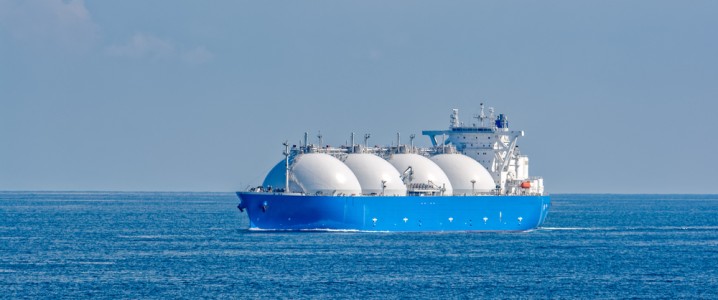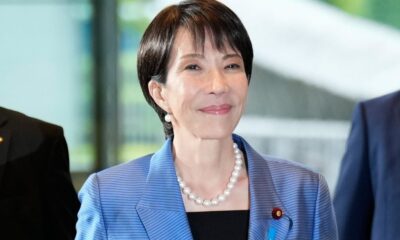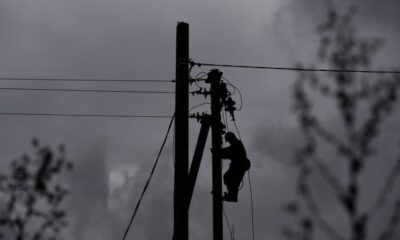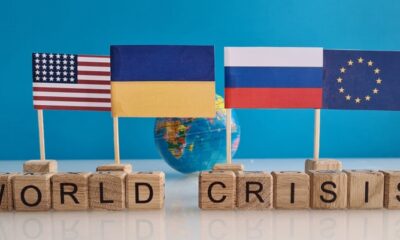Business
Japan Resists U.S. Pressure to Halt Russian Energy Imports

Japan’s Trade Minister Yoji Muto affirmed that the country will prioritize its national interests regarding energy imports, rejecting recent calls from the Trump administration to suspend all purchases of Russian oil and gas. This statement comes after a meeting between U.S. Treasury Secretary Scott Bessent and Japanese Finance Minister Katsunobu Kato, where Bessent urged Japan to cease its imports.
“Since the invasion of Ukraine, Japan has been steadily reducing its dependence on Russian energy,” Muto stated during a press briefing, as reported by Reuters. Japan’s stance reflects a complex balancing act between adhering to international pressures and maintaining its energy security.
Japan’s Energy Security and Russian Imports
In September 2023, Japan lowered the price cap on Russian crude from $60 to $47.60, aligning with its G7 partners. However, Japanese officials indicated that this adjustment was largely symbolic, as the country holds a waiver from the price cap due to the critical role Russian oil plays in its energy supply. Muto highlighted that liquefied natural gas (LNG) from Sakhalin-2 is vital for Japan, accounting for approximately 3% of the nation’s electricity generation.
While this percentage may appear modest, it is significant considering Japan’s economic size and energy needs. The nation relies heavily on imported energy to fuel its economy, with Russian hydrocarbons playing a key role in that mix.
The pressure from the Trump administration is part of a broader campaign targeting major importers of Russian energy. The rationale is to cut off the financial resources that support Russia’s military actions in Ukraine. Despite these efforts, analysts suggest that Japan’s unique energy circumstances make it unlikely to fully comply with U.S. demands.
Impact of Sanctions on Russia
The sanctions and fluctuating prices on the global market have already negatively impacted Russian energy export revenues. However, these measures have not deterred Moscow from pursuing its objectives in Ukraine, which it describes as a special military operation. The ongoing situation highlights the challenges faced by countries attempting to navigate international sanctions while ensuring their own energy stability.
Although Japan’s actions may appear to align with broader Western efforts to isolate Russia economically, the country remains committed to its energy strategy, reflecting the intricate dynamics of global energy markets. With relations between nations evolving, Japan’s approach underscores the complexities of energy diplomacy in today’s geopolitical landscape.
-

 World3 months ago
World3 months agoScientists Unearth Ancient Antarctic Ice to Unlock Climate Secrets
-

 Entertainment3 months ago
Entertainment3 months agoTrump and McCormick to Announce $70 Billion Energy Investments
-

 Lifestyle3 months ago
Lifestyle3 months agoTransLink Launches Food Truck Program to Boost Revenue in Vancouver
-

 Science3 months ago
Science3 months agoFour Astronauts Return to Earth After International Space Station Mission
-

 Technology2 months ago
Technology2 months agoApple Notes Enhances Functionality with Markdown Support in macOS 26
-

 Top Stories1 week ago
Top Stories1 week agoUrgent Update: Fatal Crash on Highway 99 Claims Life of Pitt Meadows Man
-

 Sports3 months ago
Sports3 months agoSearch Underway for Missing Hunter Amid Hokkaido Bear Emergency
-

 Politics2 months ago
Politics2 months agoUkrainian Tennis Star Elina Svitolina Faces Death Threats Online
-

 Technology3 months ago
Technology3 months agoFrosthaven Launches Early Access on July 31, 2025
-

 Politics3 months ago
Politics3 months agoCarney Engages First Nations Leaders at Development Law Summit
-

 Entertainment3 months ago
Entertainment3 months agoCalgary Theatre Troupe Revives Magic at Winnipeg Fringe Festival
-

 Politics1 week ago
Politics1 week agoShutdown Reflects Democratic Struggles Amid Economic Concerns





















